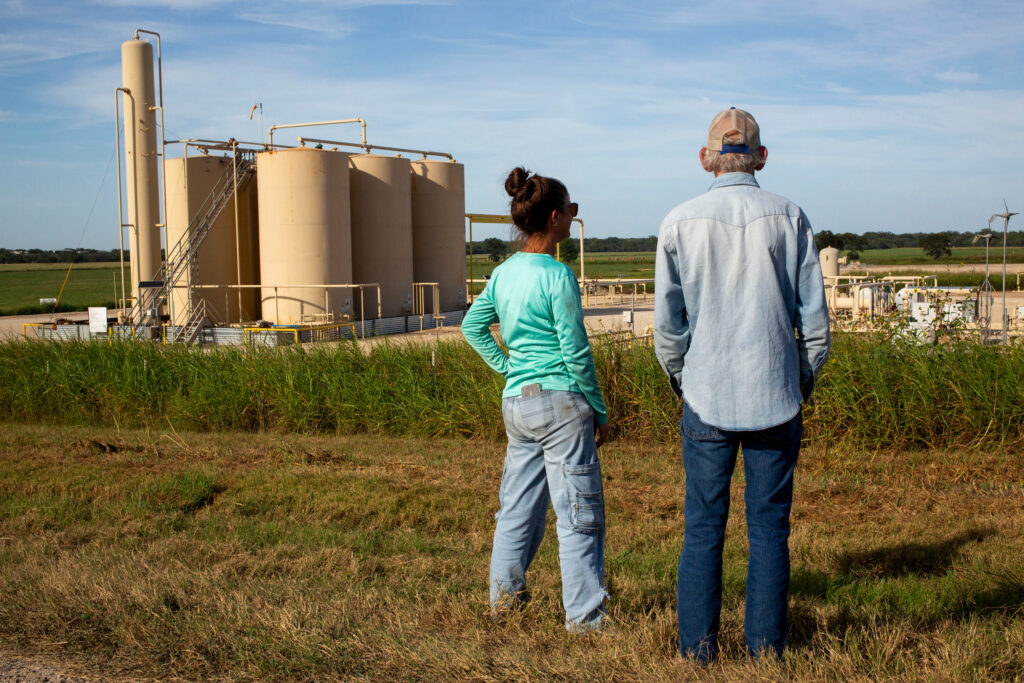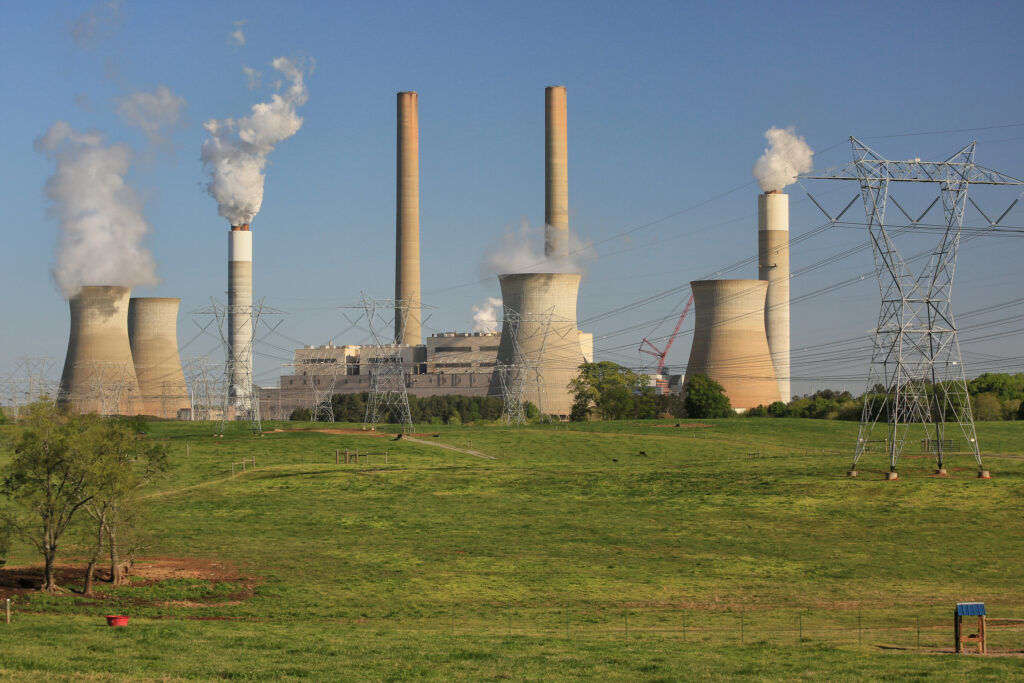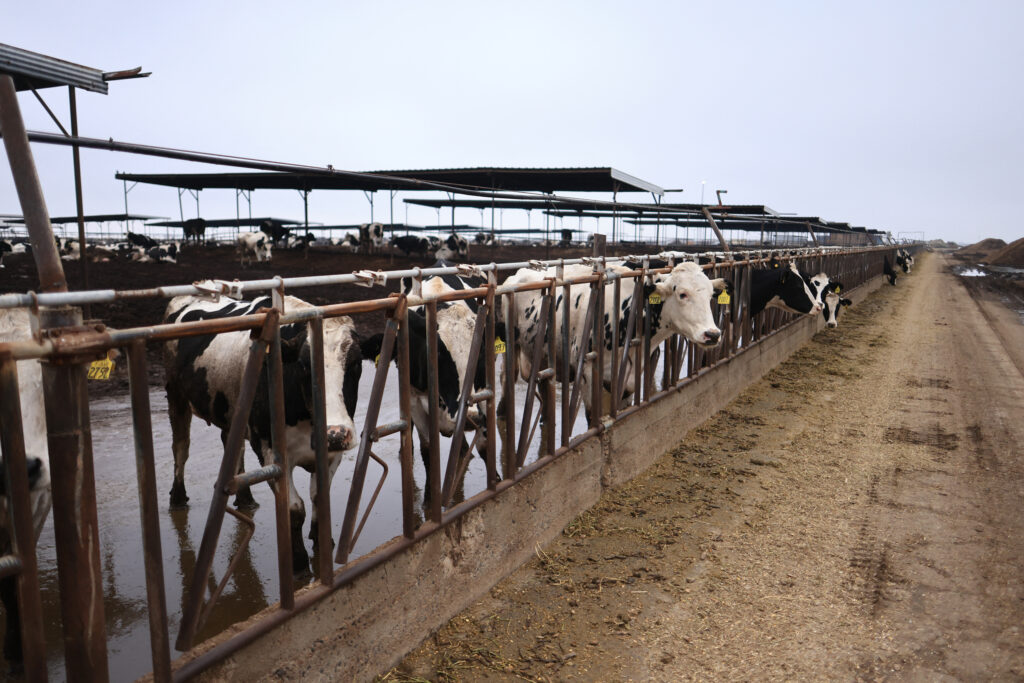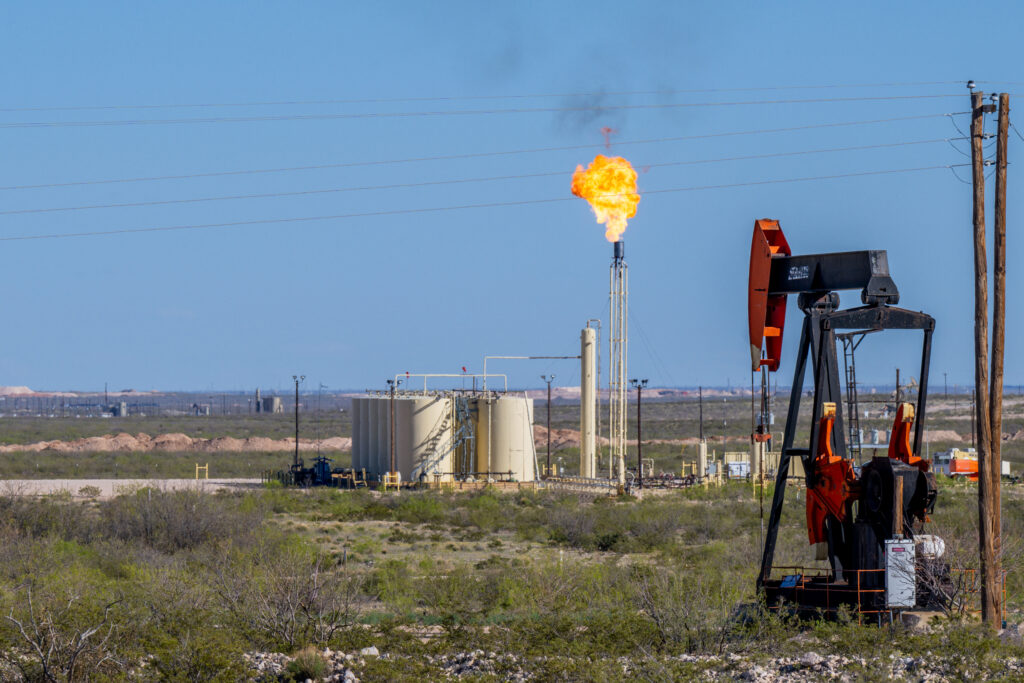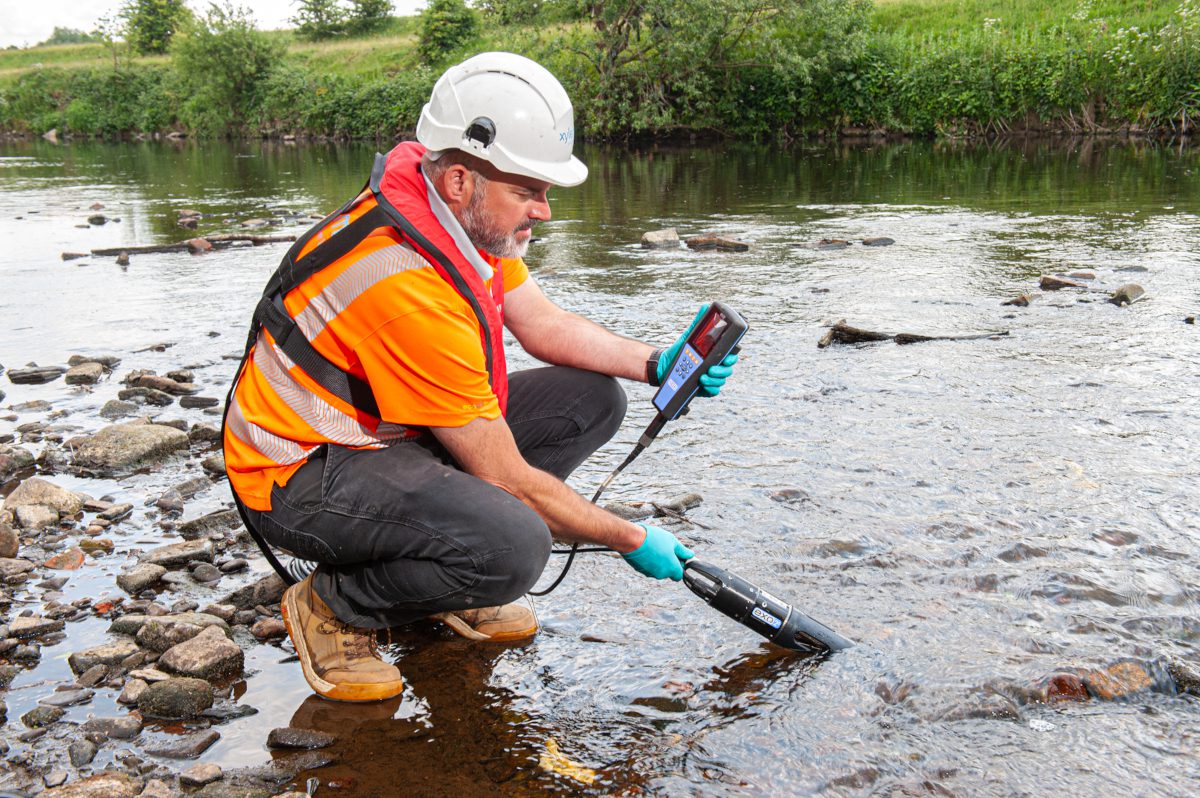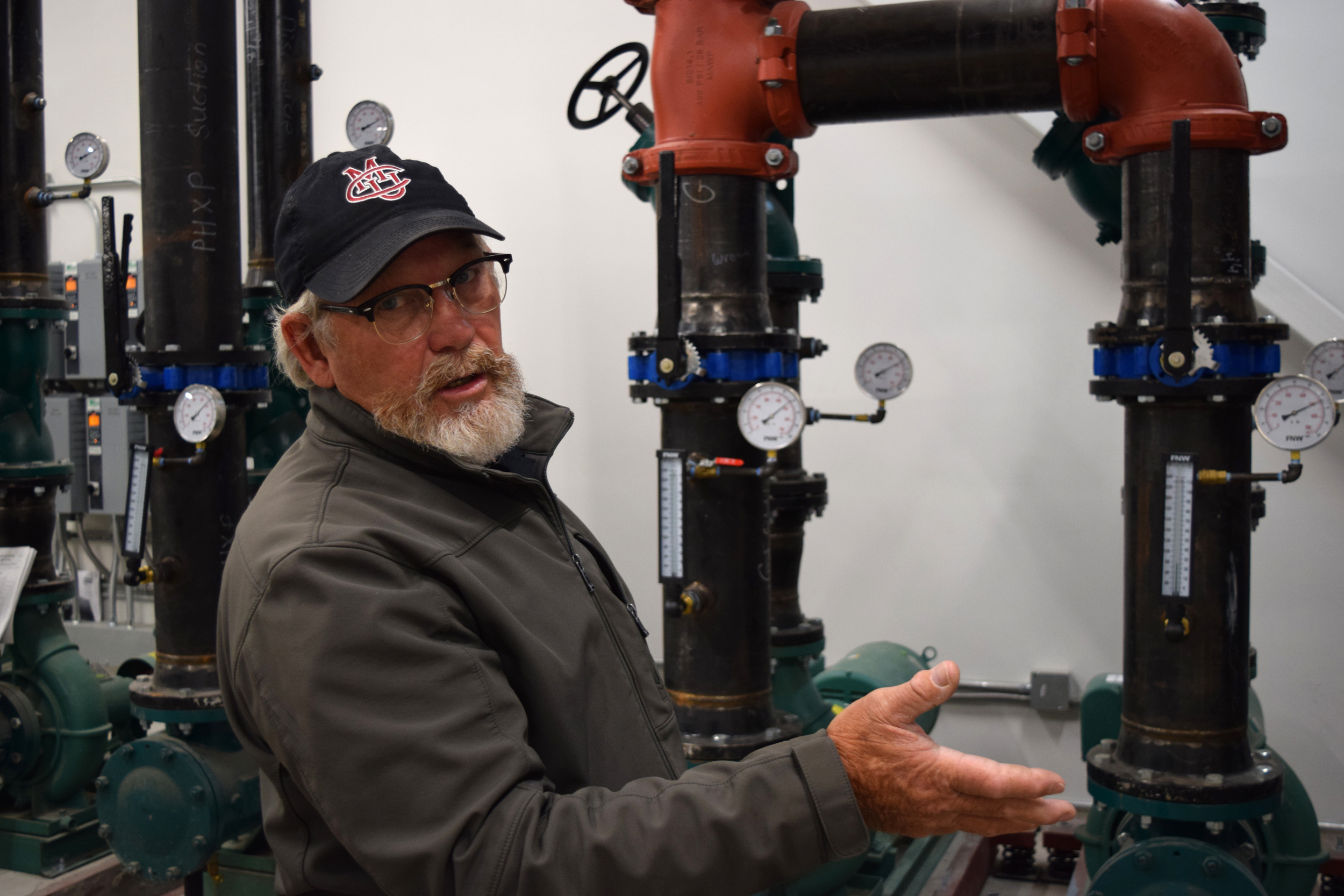California legislators and policy leaders served notice to the fossil fuel industry Tuesday during an annual summit of state climate leaders: Your bill is overdue.
California faces a $73 billion deficit, the latest estimate from the nonpartisan Legislative Analyst’s Office shows. To close the gap, Gov. Gavin Newsom has proposed cutting or delaying several billion in funding from what he hailed as an historic climate package.
At a time when “the vital signs of planet Earth are doing pretty poorly,” the state must redouble, not reduce its climate investments, said Ellie Cohen, CEO of the Climate Center, a think tank that hosts the annual California Climate Policy Summit.
Last year was the warmest on record, with average temperatures 1.5 Celsius above the pre-industrial baseline for the first time, Cohen pointed out. “We really are perilously close to triggering dangerous global tipping points.”
We’re hiring!
Please take a look at the new openings in our newsroom.
See jobs
She asked the crowd gathered in downtown Sacramento near the governor’s office if the state was spending enough on equitable solutions to the climate crisis, evoking a deafening chorus of noes.
Cutting the climate budget “is unacceptable,” said Cohen. To underscore her point, she cited a recent study warning that California must cut climate pollution 4.6 percent every year to reach its target of reducing emissions 40 percent below 1990 levels by 2030.
Protecting and growing the climate budget, the full climate budget that was signed into law, is critical, she said.
Delaying action on climate solutions will be far costlier and deadlier for Californians, she said, particularly for the 7 million who live within a mile of active oil and gas wells and are exposed to toxic pollution and carcinogens “every single day.”
Assembly Speaker Robert Rivas (D-Salinas) assured the crowd that climate action and climate resiliency are among his top priorities.
“I appreciate all of you who envision a greener California,” said Rivas, who called for a world that is fueled by 100 percent renewable and sustainable energy. “One where we protect and sustain our natural working lands and where our most vulnerable communities are safe from climate whiplash.”
Even in a deficit year, plenty can be done to move climate policy forward, said Assemblymember Isaac Bryan (D-Los Angeles) during a discussion about the state’s climate budget priorities.
“The first thing you can do is make the polluters pay,” Bryan said, to hoots and cheers.
“For way too long, frontline communities have been paying for our climate crisis,” Bryan said.
They’ve been paying with their lives and poor health outcomes, he said. “They’ve been paying in almost irreversible ways in some communities. And we’ve got to change that.”
Toward that end, Bryan introduced a bill Tuesday to make oil companies pay for operating “stripper wells”—those that produce less than 15 barrels a day—within 3,200 feet of homes and other sensitive sites in a community. “Every day that you operate that well where you’re producing no oil, you just don’t want to clean it up, we’re gonna charge you a fee going forward,” Bryan said.

Most active wells in California are stripper wells, producing marginal volumes and profits, according to analyses by the nonprofit FracTracker Alliance. Even as low producers, these wells emit methane, a climate super pollutant, and toxic air contaminants, including the carcinogen benzene. Yet companies keep marginal wells online, experts say, because it costs more to plug and clean them up, an average of $111,000 per well by some estimates.
“It’s gonna take all of us to get that kind of work passed,” Bryan told the audience. “But we’ve got to shift the cost from the people and shift the cost back to the folks who are harming the people.”
Defending Landmark Disclosure Laws
As hard as it is to pass bold legislation, Cohen said, “we also have to be sure it gets funded and implemented.”
Top priorities include two landmark laws passed in the fall that require climate accountability for major companies doing business in the state. S.B. 253 would require corporations to disclose all their greenhouse gas emissions, including those throughout the supply chain, and S.B. 261 would require disclosure of climate-related financial risks.
It’s not that the climate accountability laws were specifically targeted, said Sen. Scott Wiener (D-San Francisco), who authored S.B. 253. Instead, he said, it seems the governor’s proposed budget, released in January, didn’t fund any bills that were passed.
“It’s very problematic for governors not to fund bills that have been signed into law,” said Wiener, who was appointed chair of the Senate Budget Committee last month. “I think it sends a very negative message about the rule of law in California.”
Still, he’s confident S.B. 253 will be funded in the revised May budget or later this year, because it survived a draconian prioritization process during which legislators killed bills or the governor vetoed them to cut costs.
The emissions disclosure law is particularly important, Wiener said, because the Securities and Exchange Commission’s new disclosure rules, issued earlier this month, apply only to publicly traded companies. S.B. 253, by contrast, requires any corporations doing business in California that make over $1 billion annually to publicly disclose their full carbon footprint.
This story is funded by readers like you.
Our nonprofit newsroom provides award-winning climate coverage free of charge and advertising. We rely on donations from readers like you to keep going. Please donate now to support our work.
Donate Now
The SEC rules also do not require disclosure of so-called Scope 3 emissions, which cover a company’s supply chain and use of its products.
“As much as 80 to 90 percent of corporate carbon emissions are in Scope 3,” Wiener said. The whole point of this type of transparency measure is to hold corporations accountable, he said. “If you allow corporations to contract out their carbon emissions to third parties through their supply chain, you’re getting a very, very misleading picture.”
The California Chamber of Commerce filed a lawsuit against both S.B. 253 and S.B 261 in January with several other trade groups, including the American Farm Bureau Federal and Western Growers Association.
“Both policies violate the First Amendment because they compel companies to make public statements that are likely inaccurate or with which they disagree, due to the incredible challenge of accurately reporting or obtaining reliable information regarding the emissions of their entire supply chain,” said CalChamber’s president and CEO, Jennifer Barrera, in a statement at the time.
Wiener said the lawsuit was baseless and believes the law will survive the chamber’s legal challenge.
It’s not difficult or expensive to calculate corporate carbon footprints and the largest companies are already doing it, Wiener said. The real problem, he added, is that the biggest emitters just don’t want people to know how much they’re fueling climate change.
As important as it is to electrify vehicles, most agreed it’s not enough in a state where transportation accounts for the largest share of emissions.
“We have to dramatically expand and shore up our public transportation,” Wiener said. He called it “embarrassing” that California, the world’s fifth-largest economy, does not have a statewide rail system.
The state’s outsize transportation footprint is fueled by exorbitant housing costs and ongoing opposition to building the type of dwellings that would reduce sprawl, he said. “When people show up and say, ‘I’m opposed to this multi-unit housing here,’ you are fueling climate change, because that means it’s getting built in a sprawl area where there is no transit access and people have to drive more.”
Speaker Rivas’ district once included Big Sur, a majestic stretch of California’s central coast that attracts millions of tourists a year. People who work-low wage jobs in the hospitality industry were driving over 100 miles to work because there’s no affordable housing nearby, he said.
“Low-income, middle-income families shouldn’t have to live long distances from where they work, just to afford a roof over their head,” Rivas said. “They endure hours and hours of traffic congestion, which just adds to our climate problems.”
The world looks to California as a climate leader, Rivas said. “When it comes to climate, it is a top priority of mine, but it must be the top priority of every resident in the state because we have too much to lose as a state and as a country.”




